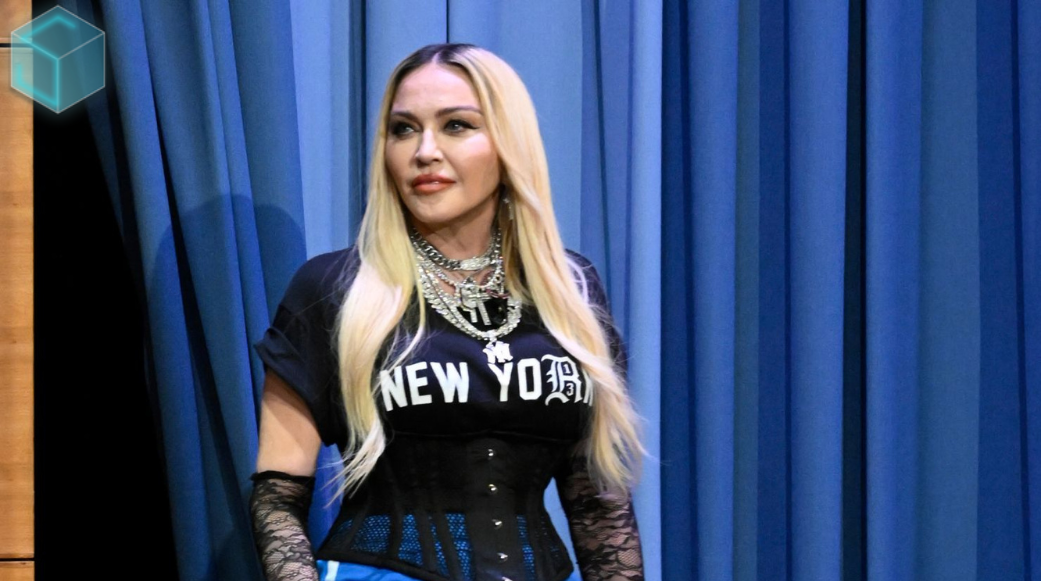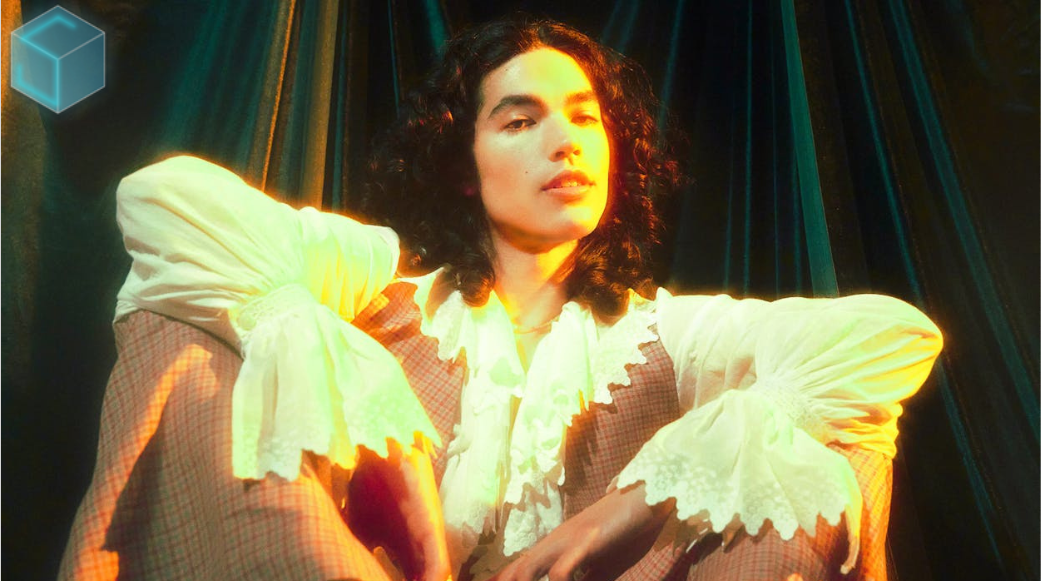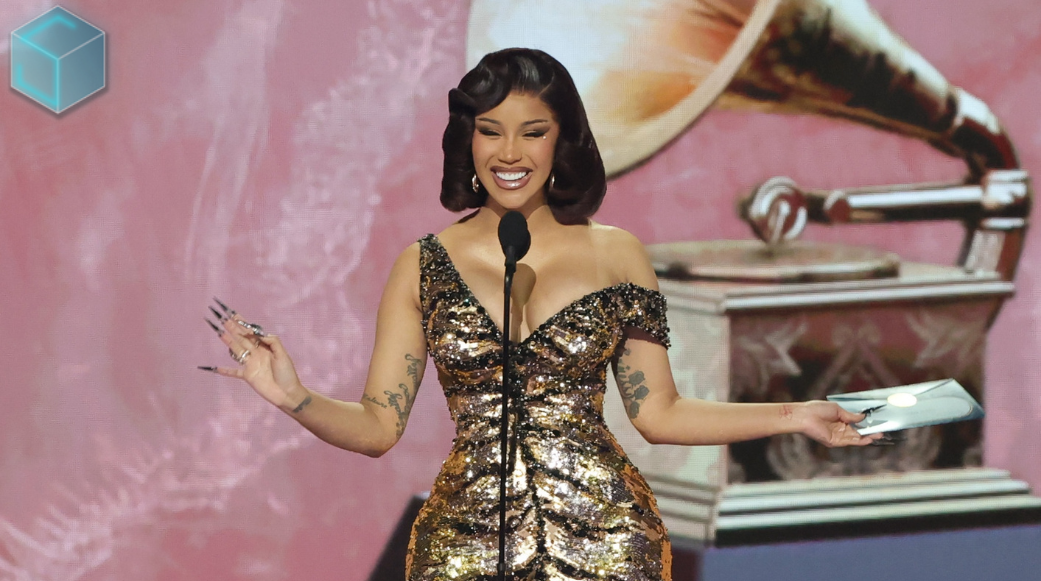
August 21, 2025
Cardi B is officially back in album mode. On Friday, the rap superstar released her new single “Imaginary Playerz,” a bold track that samples Jay-Z’s classic “Imaginary Player.” The release comes...
Read more
August 21, 2025
Gary Oldman opened up about his decades-long friendship with the late David Bowie, calling the world a very different place since the music icon’s death in January 2016. In a heartfelt interview...
Read more
August 21, 2025
The Queen of Pop just proved she's still the ultimate trendsetter even when it comes to birthday cakes. Madonna rang in her 67th birthday with a luxurious Italian getaway capped off by an enormous...
Read more
August 20, 2025
Former Little Mix star Jade Thirlwall isn't mincing words about artists who avoid political engagement, specifically calling out The 1975's Matty Healy for what she sees as a privileged stance. In...
Read more
August 20, 2025
PinkPantheress has once again cracked the code of Gen Z’s collective brain chemistry with her track Illegal. It’s short, it’s addictive, and it’s the kind of song that makes you feel like you’re...
Read more
August 20, 2025
Conan Gray has never been shy about writing songs that feel like reading your high school diary at 2 a.m. with the lights off. But with Caramel, he’s gone full Willy Wonka heartbreak mode. It’s...
Read more
August 20, 2025
PinkPantheress has always had a gift for making music that feels like it was recorded inside your daydreams, half diary entry, half late-night Tumblr scroll. With Romeo, she’s taken that talent and...
Read more
August 20, 2025
Every so often, a song arrives that feels less like a single and more like a cinematic event. LISA’s latest release, DREAM featuring Japanese actor and heartthrob Kentaro Sakaguchi, is exactly that...
Read more
August 20, 2025
If Cardi B has taught us anything, it’s that she doesn’t just rap, she throws down verbal haymakers wrapped in couture and glitter. Her new joint, “Imaginary Playerz,” is a full-on drag session for...
Read more
August 20, 2025
Everyone’s favorite pop-punkers, Joyce Manor, are back with their first new song in three years. The surprise single, “All My Friends Are So Depressed,” is out now via Epitaph Records, blending...
Read more
August 20, 2025
In 2025, Christian culture is prevalent, although it was previously on the outside of popular music. The Billboard Hot 100 is dominated by religious-themed songs like Benson Boone's...
Read more
August 20, 2025
Michael Tait, a well-known Christian rock musician (DC Talk, Newsboys), has admitted to engaging in "unwanted sensual" behavior and substance misuse for decades. Multiple accusers allege abuse...
Read more
Photo Source: China Daily
Virtual reality and the metaverse have become popular topics in the music industry where more and more technology and music have been combined, creating something that could revolutionize the entire industry - albeit with many controversies though.
In this blog, we will discuss what exactly are “virtual idols” and what makes them so revolutionary and controversial.
What are Virtual Idols?
In industry terms, virtual idols (also called virtual bands, virtual singers, virtual groups) are individuals (or music groups) who are not live, real human musicians but animated characters or virtual avatars.
Typically, the music from virtual idols are created, recorded, and performed by real musicians and producers behind-the-scenes. Graphic designers, animators, motion capture artists and creative directors all come together to bridge the gap between the world of music and visuals. In the case of live performances or concerts, it can be a challenge to coordinate the projection and timing of the visual technology in front, and the audio component in the back.
This may seem relatively new, but in fact, it’s not! The term virtual idol originated from Japan as early as the 1980s with inspiration stemming from anime and Japanese pop culture. There are also virtual bands in Western culture, albeit less popular. Some examples are the English virtual band, Gorillaz, Japan’s Vocaloid singer, Hatsune Miku, China’s virtual idol, Luo Tianyi, and the newly debuted Kpop girl group, MAVE.
With the rise of companies experimenting with artificial intelligence and advanced technology, virtual bands and celebrities may become the next wave of entertainment.
The Debate: Pros and Cons
The reactions of fans range from interest to annoyance to confusion, and there is a lot of fascination and criticism when it comes to the debate.
Let’s start with the pros, the reason why virtual idols are here in the first place:
1. Anonymity. Real in-person singers are able to perform while hiding their true identity from the public. Privacy is often limited as a popular singer, where cameras follow their every move, and everything they say. This is one way to regain some privacy and live normally.
2. Uniqueness. Out of the hundreds or even thousands of live singers that debut every year, currently, virtual idols stand out. Although this does not guarantee success, virtual idols grab the attention of the public and allow the artists behind them to showcase their talent in a special way.
3. Reduction in barriers. From a company’s perspective, with these virtual avatars, they do not need to worry about scandals, illnesses, or aging. These idols can also last for an indefinite amount of time, and there are infinite ways to change their appearance, the way they interact with fans, and their performance.
4. Creative collaborations. Virtual idols introduce more opportunities to other industries such as gaming, films, and fashion.
Now, the criticism and the doubts:
1. Quality of music. Although many of these virtual idols are backed by real singers, some are not. Those idols that use technology and AI to create automated voices, can be hugely disliked by fans, as a machine-created voice differs greatly from a genuine voice.
2. Unrealistic Perfection. These forever perfect AI created models possibly further push unrealistic beauty standards amongst audiences. Their lack of human imperfections can actually make it difficult for fans to connect with virtual idols emotionally.
3. Lack of Fan Enthusiasm. Despite the concept of virtual celebrities being around for many years, it is still a controversial idea that has not reached the mainstream. Many fans who are familiar with real, live breathing singers may need some time to familiarize themselves with the virtual stage, before choosing whether or not to support the virtual band.
So…Which Path is Better?
With both sides in consideration, it is up to you as to which path may work best for you. The virtual idol pathway is starting to become a concept worthy of attention and experimentation, with East Asian cultures taking the lead in production.
If you wish to show off your talent in a unique way while being anonymous, perhaps consider the prospects of a virtual idol. If you prefer to sing live on stage and interact with fans face-to-face, the traditional path may be right for you. Perhaps you want a mix of both worlds, where you can perform live in-person, and have an animated character for online interactions or opportunities.
No matter which path you choose, each has its own challenges and rewards. Ensure you have a plan with a strong understanding of your goals.
Whether you choose to be a virtual idol or a physical singer, you are a part of the next generation of music professionals.
Reference List
Rolling Stone India - The Future Of K Pop Virtual Idols
China Daily - Virtual idols bring new life to entertainment industry